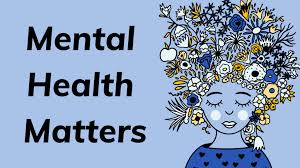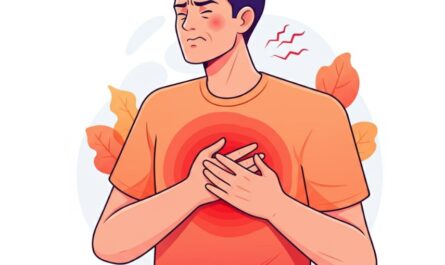What is Mental Health?
Mental health is about how a person feels emotionally, how their mind works (psychologically), and how they get along with others (social well-being). It affects how people think, feel, and act in their everyday lives. Professionals who deal with mental health help people manage conditions like feeling very down (depression), feeling very worried (anxiety), having extreme mood swings (bipolar disorder), having problems with addiction, and other issues. These conditions change how people think, feel, and behave.
Mental health doesn’t just affect your emotions, but also your daily life, your relationships with people, and your physical health. Things happening around you, your relationships, and what you’ve experienced in your life can greatly change how good your mental health is. Taking care of your mental health helps you stay strong mentally, feel balanced in your life, and be able to enjoy life even when you are stressed.
Feeling stressed, very sad (depressed), and very worried (anxious) are common things that can mess up your mental health and make everyday routines difficult. Interestingly, many mental health problems might also have roots in biology or physical health, showing a close connection between the health of your mind and the health of your body.
This article looks at mental health, identifies common problems, their signs (symptoms), and how to deal with them effectively. It also gives helpful ideas about mental health tips for people who work in stressful jobs, ways to cope with problems.

Why Mental Health Matters
According to the World Health Organization (WHO), mental health is not just about not having a mental illness. It also means reaching your best possible mental well-being, managing any mental health problems you have, and trying to be happy and healthy.
Keeping good mental health helps individuals, communities, and even the whole of society by making everyone healthier overall. Managing stress or using techniques like paying attention to the present moment (mindfulness meditation) for mental health is important for personal peace and peace for everyone.
It’s important to know what things can increase the risk of mental health problems and to take steps to prevent them to avoid bigger issues. Whether you are seeing the early signs of feeling completely worn out (burnout) or dealing with ways teenagers can handle mental health problems, being aware and managing these things is very important.
Risk Factors for Developing Mental Health Issues
Mental health problems can affect anyone, no matter their age, gender, how much money they have, or their ethnic background. Things that make the risk higher include:
1. Socioeconomic Pressures
Challenges like having money problems, not having enough resources, or belonging to groups that are treated unfairly can increase the risks to mental health. Studies show that being poor or living in less developed areas greatly affects whether people can get good mental health care.
Examples of Socioeconomic Factors That Can Be Changed:
- How many people have jobs in your area
- How good and how affordable housing is
- How much community or social support there is
- How easy it is to get good education
2. Bad Things That Happen in Childhood
Experiences kids have, like being hurt or mistreated (abuse), their parents separating, or going through something very upsetting (trauma), can have a big impact on their mental and physical health later in their lives. These bad childhood experiences are linked to problems like post-traumatic stress disorder (PTSD).
3. Things Inside Our Bodies
The genes that run in families can make some people more likely to have certain mental health problems. However, just because someone has these genes doesn’t mean they will definitely get a mental health condition. Also, someone who doesn’t have a family history of these problems can still experience them. In addition, mental health conditions, like feeling very worried (anxiety) or very sad (depression), can happen because of long-term illnesses like diabetes or cancer.

Common Types of Mental Health Problems
Mental health problems are grouped together based on how they affect people and what signs (symptoms) they cause. Important groups include:
1. Anxiety Problems
Anxiety problems are very common and can include:
- Generalized Anxiety Disorder (GAD): Worrying and being afraid too much, which messes up daily life. Signs often include feeling restless, having trouble focusing, feeling tired, having tense muscles, and having trouble sleeping.
- Panic Disorder: Having sudden panic attacks with a feeling of extreme terror.
- Phobias: Having very strong fears, like being afraid of social situations (social phobia) or being afraid of open or crowded places (agoraphobia), which can make it very hard to do everyday activities.
2. Mood Problems
Mood problems involve times of feeling extremely happy or extremely sad:
- Depression: Feeling sad all the time or losing interest in things you used to enjoy.
- Bipolar Disorder: Switching between feeling very energetic (manic) and feeling very down (depressed).
- Seasonal Affective Disorder (SAD): Feeling depressed when the seasons change, often because there’s less sunlight.
3. Schizophrenia Spectrum Disorders
Schizophrenia involves losing touch with reality (psychosis) and other serious signs like having strange beliefs or seeing or hearing things that aren’t there. Signs usually show up between the ages of 16 and 30 and can include seeing or hearing things (hallucinations), having disorganized thoughts, or wanting to stay away from social life.
Early Warning Signs of Mental Health Issues
Pay attention to these early signs that someone might be having mental health problems:
- Avoiding being around people or doing activities
- Sleeping or eating at irregular times
- Using too much alcohol or nicotine
- Feeling sad all the time, having low energy, or feeling hopeless
- Hearing voices or having thoughts of hurting themselves or others
- Having trouble handling everyday things like work or taking care of themselves
Recognizing these signs early makes it possible to get help when it’s needed, whether by trying to manage things on their own or by talking to a mental health professional.
How Mental Health Conditions Are Diagnosed
Figuring out if someone has a mental health condition needs a careful approach:
- Physical Exams and Medical History: Doctors first check to make sure there isn’t a physical health problem causing the issues.
- Psychological Evaluations: Asking questions and having conversations about thoughts and behavior helps doctors understand what’s going on.
- Laboratory Tests: Blood tests or scans can help find any underlying physical causes.
The goal is to get a complete picture of each person’s physical and mental health to make sure they get the right treatment.
Ways to Cope and Helpful Tips
Actively taking care of your mental health can make your daily life much better. Here are some things you can do:
- Self-Care Routines at Home: Make sure you do things like exercise, get good sleep, and eat healthy food.
- Mindfulness Meditation or Writing in a Journal: Help you feel more balanced emotionally and reduce stress.
- Get Therapy: Using good online therapy services can be an easy and helpful way to get regular mental health support.
- Limit Social Media Use for Young Adults: Social media often has a bad effect on mental health. Young adults can feel better by spending less time on screens or following accounts that promote good mental health.
If you or someone you know is trying to deal with mental health problems, it’s important to build a personal support system of people who care.
Final Thoughts
Taking care of your mental health is just as important as taking care of your physical health. From noticing early signs like feeling completely worn out (burnout) and mentally exhausted to finding good and affordable mental health resources, it’s important to take action.
If you feel like things are too much to handle, don’t be afraid to see a professional. They can help you understand what you’re going through and suggest ways to cope.
Help yourself by practicing mindfulness, being aware of your feelings, and having consistent support to feel better. Strong mental health is the base for living a happy and balanced life.
To Read More: 10 Seriously Sneaky Mental Health Hacks
Join Us: Facebook




2 thoughts on “What Is Mental Health? Understanding Disorders, Causes”